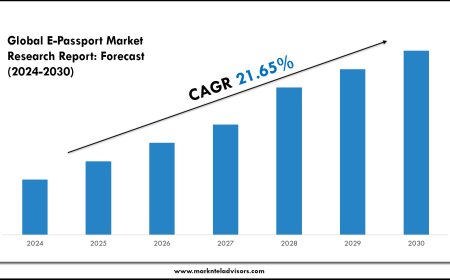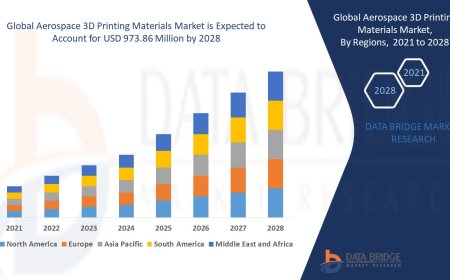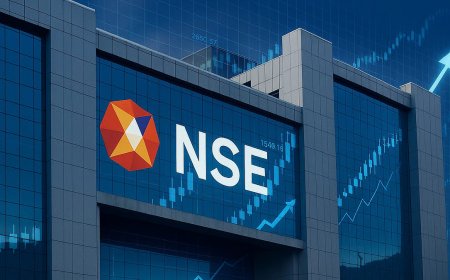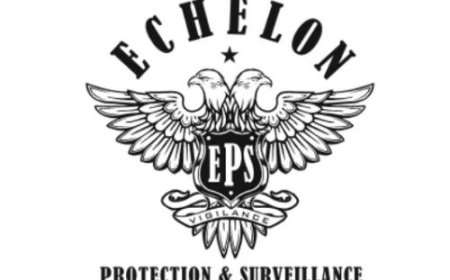A Step-by-Step Breakdown of Token Development Services for Beginners
Discover a beginner-friendly, step-by-step guide to token development services—covering everything from smart contracts to exchange listing and post-launch support.

The rise of blockchain technology has paved the way for a new digital economy powered by crypto tokens. Whether its powering decentralized finance (DeFi) apps, supporting NFT ecosystems, or raising funds via Initial Coin Offerings (ICOs), tokens are the backbone of this revolution. If youre a beginner curious about how tokens are created and the services involved, this guide is for you.
Lets walk through the entire process of token development servicesfrom understanding the concept to post-launch supportin simple, actionable steps.
What Is a Crypto Token?
Before diving into the steps, lets first define what a token is.
A crypto token is a digital unit of value created and managed on a blockchain. Unlike coins like Bitcoin or Ethereum (which are native to their blockchains), tokens operate on existing blockchain platforms such as Ethereum, Binance Smart Chain (BSC), Solana, Polygon, etc.
Tokens can represent anything: utility, security, governance rights, NFTs, or real-world assets.
Why Token Development Matters
Businesses and startups use tokens to:
-
Raise capital via ICOs, IDOs, or STOs
-
Power decentralized apps (dApps)
-
Incentivize communities
-
Enable governance via DAOs
-
Represent digital/real-world assets like art, real estate, and more
With the growing number of use cases, professional token development services have become essential to ensure security, scalability, and compliance.
Step-by-Step Breakdown of Token Development Services
1. Requirement Gathering and Ideation
The first and foremost step involves strategic planning and defining the tokens purpose.
Key Activities:
-
Understanding the business model
-
Identifying the type of token (utility, security, governance, NFT, etc.)
-
Deciding on the blockchain platform
-
Outlining tokenomics (supply, distribution, incentives)
Why it matters: This phase ensures the token fits into your business goals and regulatory framework.
2.Choosing the Right Blockchain
Based on the project's requirements, developers choose a suitable blockchain ecosystem.
Popular options:
-
Ethereum Most used for smart contracts and DeFi
-
Binance Smart Chain (BSC) Cost-effective and fast
-
Polygon Scalable and EVM-compatible
-
Solana High throughput, low fees
-
Avalanche, Tron, Arbitrum, and more
Factors considered:
-
Transaction speed and cost
-
Smart contract support
-
Community and developer base
-
Compatibility with wallets and exchanges
3.Token Standards and Specification Finalization
Each blockchain has specific token standards. For example:
-
ERC-20: Fungible tokens on Ethereum
-
ERC-721 / ERC-1155: NFTs on Ethereum
-
BEP-20: Tokens on Binance Smart Chain
-
SPL: Tokens on Solana
Developers finalize:
-
Token name and symbol
-
Decimal places
-
Total and initial supply
-
Minting or burning rules
-
Transfer and ownership logic
4.Smart Contract Development
This is the core of token creation. Smart contracts govern how the token functionsits distribution, transaction logic, governance rules, etc.
Services included:
-
Writing custom smart contracts
-
Integrating with token standards (like ERC-20 or BEP-20)
-
Adding advanced features (vesting, staking, airdrops, etc.)
-
Auditing for vulnerabilities (e.g., reentrancy, overflows)
Security Tip: Always perform smart contract audits through third-party or internal security experts to ensure there are no backdoors or bugs.
5.Testing on Testnet
Before going live, developers deploy the token on a testnet (e.g., Ethereums Goerli or BSC Testnet).
Purpose:
-
Test token functionality
-
Check for bugs and gas optimization
-
Ensure seamless user interaction
-
Simulate real-world conditions
Bugs found in this stage are fixed before deploying the token on the mainnet.
6.Token Deployment on Mainnet
Once tested, the token is deployed on the mainnetmaking it live and publicly accessible.
Developers ensure:
-
Proper configuration of gas fees
-
Secure deployment practices
-
Logging of contract address
-
Verification on explorers like Etherscan or BSCScan
Once deployed, the token address becomes permanent and immutable.
7.Tokenomics Integration and Distribution
Tokenomics refers to the economic model of your token: how its distributed, earned, or spent.
Token development services include:
-
Creating token vesting contracts
-
Setting up liquidity pools on DEXs like Uniswap or PancakeSwap
-
Designing staking and yield farming options
-
Handling initial distributions (to founders, investors, community, etc.)
Carefully planned tokenomics builds trust and long-term sustainability.
8.Wallet Integration
Users need wallets to store and interact with your token.
Wallet support includes:
-
MetaMask
-
Trust Wallet
-
Coinbase Wallet
-
Ledger / Trezor (hardware wallets)
Token development services ensure the token is compatible with these wallets and visible in token lists.
9.Exchange Listing Support
To drive adoption, youll need to list your token on crypto exchanges.
Services include:
-
DEX Listing: Pairing on platforms like Uniswap, SushiSwap, or PancakeSwap
-
CEX Listing: Assisting with technical documentation for centralized exchanges
-
Liquidity provision and locking
-
Token price feed integration (Chainlink oracles)
10.Smart Contract Auditing and Compliance
Smart contracts are often targets for hacks. An external audit report boosts investor confidence.
Audit firms check for:
-
Reentrancy attacks
-
Integer overflows/underflows
-
Logic errors
-
Unauthorized access vulnerabilities
Also, for security or utility tokens, compliance with local and international regulations is important. Services may include KYC/AML integrations, legal consultations, and whitepaper preparation.
11.Dashboard and Admin Panel Development
To manage your token ecosystem, many projects opt for a backend dashboard.
Features include:
-
Token distribution tracking
-
Airdrop tools
-
Vesting schedules
-
Analytics and user management
-
Manual override for emergencies
Admin dashboards bring more transparency and control to the project team.
12.Marketing and Community Building Support
Even the best token fails without visibility. Many token development agencies offer token marketing services, including:
-
Whitepaper and pitch deck creation
-
Community setup on Telegram, Discord, and X (Twitter)
-
Influencer outreach
-
Paid ad campaigns
-
Press releases and media coverage
-
ICO/IDO page setup
Community trust is key in the crypto worldbuilding it early ensures better traction.
13.Post-Launch Support and Upgrades
Post-launch, you may need ongoing support for:
-
Token unlock schedules
-
Liquidity management
-
Security patching
-
Governance upgrades
-
Roadmap execution and new feature rollouts
A good token development service provider offers long-term support to ensure your tokens success.
Final Thoughts: Why You Need Professional Token Development Services
While its technically possible to create a token in just a few lines of code, building a secure, scalable, and compliant token ecosystem requires much more. From ideation and smart contract creation to audits, exchange listings, and marketingevery step plays a crucial role.
Choosing the right token development partner can make or break your project. Look for providers with:
-
Experience across multiple blockchains
-
A portfolio of successful token launches
-
Full-stack blockchain development capabilities
-
Strong auditing and compliance knowledge
-
Integrated marketing and community services
Conclusion
Token development may seem complex at first, but breaking it down into actionable steps makes it much more approachable. Whether you're a startup exploring Web3 or a business looking to tokenize your ecosystem, understanding the process empowers you to make informed decisions.From defining your tokenomics and writing secure smart contracts to ensuring exchange listings and user adoption, professional token development services streamline your journey into the crypto space.If you're ready to launch your own token or just exploring the idea, now is the time to start. With blockchain gaining global traction, early movers will have a significant edge.


































